This weekly focuses on international news. With some sifting, you'll find in-depth articles on water and economics, politics, business, technology, pollution, climate change, resource extraction and more.
Blue Planet Links does not guarantee the accuracy or objectivity of the information presented on listed websites or publications. We have attempted to present a variety of perspectives on the issues in the hope that the more you know, the more likely you are to influence and make wise public and personal decisions to promote healthy oceans and fresh water.
© 2024 Blue Planet Links
InfoLinks
-
World water data
A comprehensive fresh water site, not just for Canadians. Check out Water Governance and Legislation (international and Canadian), Water Management (e.g. Bulk Water Removal & Water Export), and Explore the Topics for climate change information and more.

Canada's largest organization devoted to marine conservation, tackling such issues as oil tankers on the coast, marine biodiversity, sustainable fisheries, ocean planning through ecosystem-based management, ocean acidification. The Living Reef was a project to conduct a census of British Columbia's reef sealife by enlisting the help of divers and snorklers. See Ocean Planning for issues on the radar and Maps for Marine Protected Areas.
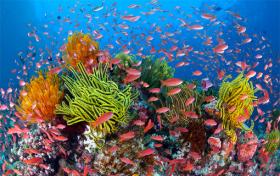
U.S. based organization mounts an annual Conference on Science, Policy and the Environment. Look under Agenda for Past Conferences on Food-Energy-Water, Integrating Environment and Health, and most recently, the Science, Business and Education of Sustainable Infrastructure.
Search "water" for info and articles on water and water issues around the world. Calculate your water footprint, take the freshwater quiz, and peruse beautiful water-related photography.
Global environmental data. Part of U.S. National Oceanographic and Atmosphere Administration (NOAA).
Research and publications on water through Oxfam America, a global organization working to right the wrongs of poverty, hunger, and injustice.
Sponsored by UK-based Water Policy International Limited, the Water Page is an independent initiative dedicated to the promotion of sustainable water resources management and use in the developing regions.
This web-site has a wealth of international information and provides critical comment and analysis in various categories: Issues (e.g. international water companies), Development (e.g. "Arsenic in Drinking Water"), Rivers & Regions (e.g. the Mekong), Documents (e.g. papers on water in several countries and from recent conferences), Features (e.g. How Much Water Does it Take to Make Beer?" and Editorial (e.g. "Right to Basic Water Supply?").
The Pacific Institute, an independent California-based think tank, provides up-to-date water information, data, and links to organizations working on a wide range of global freshwater problems and solutions. Special interest in international water law and water-based conflicts. Institute Director Peter Gleick authors a biennial World Water Report.
A motherlode of global water information. Includes reports, statistics, links to UNESCO and UNESCO-led programs, news on international water events and conferences, water celebrations, as well as links to hundreds of water organizations in many nations. UNESCO's International Hydrological Program (IHP) spurs intergovernmental cooperation in water management through technology, education and conflict resolution.
UNESCO's World Water Assessment Program (WWAP) produces an annual World Water Development Report, a comprehensive assessment of global freshwater resources, challenges and issues. A collaboration of UN agencies, it is considered a keystone summary. The 2018 report is on Nature-Based Solutions for Water.
UN-Water addresses the fresh-water Thematic Priority Areas of water and climate change, transboundary waters, water, sanitation & hygiene, and water quality through a variety of Task Forces. Statistics provides pages of facts and figures which can be filtered by topic.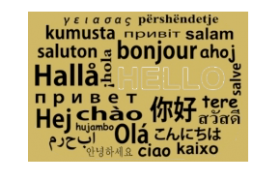
It takes about 15,000 litres of water to produce a kilo of beef, so that hamburger you're thinking of eating took about 1,000 litres. Recognizing that we need to use less water overall, a scientist at the University of the Netherlands reasoned that if we realized how much we were using, we'd use less. Check out your own water footprint, or that of your favourite industry.
Huffington Post. Contrasting images of average families around the world in their home setting, surrounded by the amount of water they use per day.
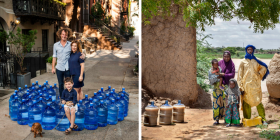
An environmental research and policy organization that has been applauded for going beyond research to practical solutions. Its 1997 Comprehensive Assessment of the Freshwater Resources of the World is published by several U.N. organizations. In 2001, WRI produced the water film for television, "World on Edge" with PBS's Bill Moyers.
Independent global environmental research and watchdog group, whose objective is to help create a sustainable and socially just society. Produces annual "State of the World" environmental report, WorldWatch Magazine, live and archived discussion groups, news features on current environmental topics. Environment & Climate has a wide selection of articles on water.
-
Aquaculture & fishing
Wild salmon crusador Alex Morton keeps her investigative blog up-to-date on the consequences of the fish farming industry, documenting the decline of wild salmon, the Canadian Department of Fisheries and Oceans' purposeful silence, and the rise of Infectious Salmon Anemia virus (ISAv) in British Columbia.
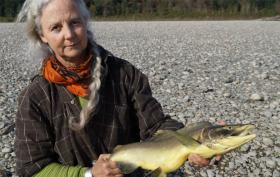 March 5, 2018
March 5, 2018Vancouver Metro. Following the announcement that WA state will phase out open-net fish farming, pressure is on for the B.C. government to decide if they will renew fish farm tenures, including eighteen in the Broughton Archipelago area which expire in June.
Offers news and opinion from Canadian and international media reports on Oceans (fisheries, ocean health and aquaculture) and Fresh Water (hydropower, water and hydrocarbons, privatization, scarcity).
Global database of fish, fishing and aquaculture statistics, by University of British Columbia prof, Daniel Pauly. Pauly was named one of the 50 most influential scientists in the world by Scientific American magazine and is an authority on how declining fish stocks respond to environmental pressures, ecosystem fluctuations and commercial fishing. His Ecopath modeling program also predicts how fish may respond to changes in their environment.
Search "Aquaculture and Fishing Management", "Overfishing and International Fisheries Governance", or see Scientific Publications for interesting statistics and the latest Canadian water-related environmental reports by the federal government agency. Check REGION for pollution stats and to research your own area.
National Geographic. Compares the pros and cons of different styles of fish farming, from polluting open-net to energy-intensive closed-containment, calorie-consuming sports fish to species at the bottom of the food chain, monoculture to innovative polyculture. With seafood consumption set to grow 35% in twenty years and wild fish catch stagnating, aquaculture is poised to continue its pattern of global growth.
July 12, 2018Science Daily. Off the coast of Cyprus in the Mediterranean Sea, many fish farms have been moved into deeper waters -- and on the seabeds beneath their previous locations, the meadows are flourishing once again.
An independent body appointed by Canadian federal and British Columbia governments to report and advise Canadians on the status of B.C.'s salmon stocks, their habitat and ecosystems. Search archives of their many reports.
Although the campaign by mostly environmentalists is inactive, Pure Salmon's website remains, offering problems and solutions "for raising the standards for farm-raised salmon".
February 12, 2018UPI. Even if they survive the toxins in stormwater runoff, salmon may still suffer damage to sensors they depend on for navigation and feeding.
By Charles Clover (2006). Fewer and smaller fish, and sometimes no fish at all - fish "mining", by-catch losses, pollution and lack of regulation and political will all contribute to declining stocks the world over. Clover proposes some reasonable solutions.
Vancouver Sun. Not all fish farms are inherently evil, but be cognizant of which farms are more sustainable than others, ie. shellfish and closed inland systems. With global fisheries ("the last great wild proten we consume") predicted to collapse by 2050, fish farming may be the solution for the future of seafood.
March 22, 2018Living Oceans. On World Water Day, Washington makes it law that open-net salmon farms in the state will no longer be allowed at the expiration of their current leases. Environmental groups call on BC to follow Washington's lead.
"Watching out for BC's wild salmon", Watershed Watch spearheads issues such as open-net fish farms, the impact of hydropower projects, unsustainable harvesting, pollution, and many others that may have a detrimental impact on wild salmon.
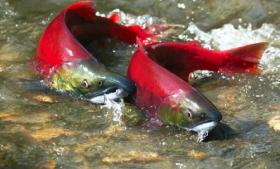
Uruguay-based WRM works to secure the lands and livelihoods of forest peoples and supports their efforts to defend rain forests from such threats as commercial logging and shrimp farming. Shrimp Farms has articles which provide background on the effects of aquaculture on tropical coastal mangrove ecosystems.
-
Groundwater & pollution
This UN agency's Land and Water Development Division is concerned with water and agriculture. AQUASTAT provides global and regional water usage statistics. FAO's Water Development & Management Unit focuses on sustainable use and conservation of water in agriculture for food security.
PBS Frontline program looks at the effects of civilization on Puget Sound and Chesapeake Bay, coastal estuaries on opposite coasts.
A 2015 report by Ocean Conservancy and McKinsey Center for Business and Environment warns that plastic in the oceans could double to 250 million metric tons by 2025 - one ton for every three tons of fish. China, Indonesia, the Phillipines, Thailand and Vietnam are responsible for half of land-based sources of plastic. The solutions-based report recommends a $5 billion investment per year to reduce plastic-waste leakage by 65% in those countries and 45% globally.
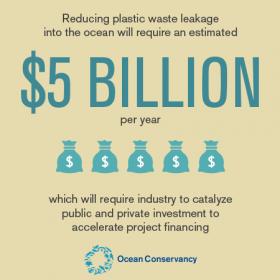 February 12, 2018
February 12, 2018UPI. Even if they survive the toxins in stormwater runoff, salmon may still suffer damage to sensors they depend on for navigation and feeding.
Dr. Peter Ross is the only marine mammal toxicologist in Canada and has been studying pollution in the Pacific Ocean and its effects on marine life for the last 3 decades. He is the Director of an ambitious new program at the Vancouver Aquarium designed to measure and assess the impact of ocean pollution.
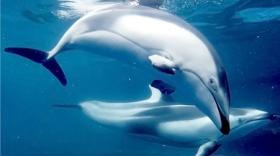
-
Environment & climate change
Excellent starting point to learn about the Great Pacific Garbage Patch; includes several additional links to further information.
by Chris Wood, Ralph Pentland (Greystone Books, 2013). In water-rich Canada we assume we have an unlimited supply of tap water safe for consumption, but that is not necessarily the case. Wood and Pentland expose a detailed history of water mismanagement and lack of government action to safeguard our precious resource. Includes an idea for a charter that will hold government accountable for protecting water.
"Weather is changing. Get ready for it." Weather is felt most tangibly through water: rain, snow, flooding, drought, ice. In Dry Spring by Chris Woods, we learn how climate change is already affecting North American orchardists, fishers and people who live on the coast. Wood offers some suggestions about how to mitigate the worst effects.
This weekly focuses on international news. With some sifting, you'll find in-depth articles on water and economics, politics, business, technology, pollution, climate change, resource extraction and more.
American federal agency offers a wide variety of information and services from grants to water-related educational resources and Safe Drinking Water regulations.
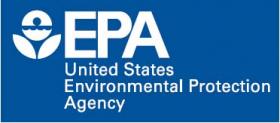
Comprised of 18 international leadership figures, including former Canadian Prime Minister Paul Martin, the Global Ocean Commission's recommends solutions to key problems contributing to the high seas' degradation: overfishing; large-scale loss of habitat and biodiversity; the lack of effective management and enforcement; deficiencies in high seas government. After 18 months of research, the Commission released its report From Decline to Recovery: A Rescue Package for the Global Ocean with a five year deadline for action.
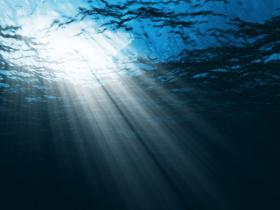
HAE by Statistics Canada takes a comprehensive look at Canadian ecosystems and the value of ecosystem goods and services. A new report is published annually.
Mangrove Action Project. In addition to protecting coral reefs and acting as a buffer against hurricane winds, mangroves - rainforests at the border between land and ocean - store the most carbon per hectare compared to any other forest. Less than half of mangrove forests remain due to the pressure of development and the shrimp aquaculture industry.
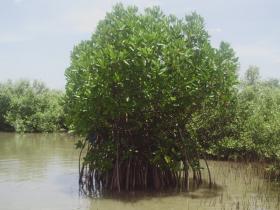 February 17, 2018
February 17, 2018Vancouver Sun. One Ocean Expeditions is collecting data on microplastics during a research trip to Antarctica. The researchers now estimate that microplastics will be found in every single sample pulled from the ocean anywhere in the world. This is especially alarming considering plankton - the bottom of the food chain - mistake microplastics for food. Most microplastics are actually microfibres which come from clothing.
Research and information on Climate Change Impacts and Adaptations for Canada: risks, vulnerabilities and programs for adapting to the future. See Water Management for the Water Balance Model (projected impacts in 2020, 2050, and 2080) and Water Conservation Calculator.
EcoWatch. A solar and wind-powered floating vaccuum, SeaVax is the latest ocean clean-up device in a proto-type stage, seeking funding to make a dent in the ocean's plastic problem.
August 5, 2015Rolling Stone. Ocean acidification, drought, intense rains, exceptionally warm and cold patches of ocean, marine life migrating north, decreased plankton, dead zones... this in-depth article documents the numerous ways changes in the ocean are evidence of climate change proceeding faster than expected.
By Iain McCalman (Farrar, Strauss and Giroux, 2014). Absorbing story of the UNESCO World Heritage Site that is moving towards the "in danger" category thanks to industrial development and dredging.
-
Home, garden & building tips
Leaders and experts on the topic of water efficiency in California. Resources include best management practices, tips on water efficient products, and sustainable landscapes.
Tips to help your lawn and garden cope with dry conditions. Also fact sheets on other facets of owning, maintaining or renovating your home.
By Art Ludwig (Oasis Design, 3rd edition, 2004). A 51-page booklet, "Your Complete Guide to Choosing, Building and Using Grey Water Systems". By the same author: "The Builder's Greywater Guide".
Waterwise gardening helps conserve water and keeps chemicals out of our groundwater. Canada-wide non-profit environmental group promotes sustainable cities. Search Projects or Tools & Publications by subject and region to see what they're up to!
Discover the top 5 actions to save water (and money!) in your home, and take a house tour to determine strategies to reduce excess water consumption according to each room and the outdoors.
By Carole Rubin (Harbour Publishing, 2002) You can still have a great garden without pesticides, fertilizer, grass seeds, or even much water! This "North American Guide to Turning Off the Tap and Going Native" provides advice for conserving water and preventing chemicals from polluting groundwater.
Working towards healthier human and wildlife habitat along the shorelines of Canada, the Living by Water Project is a national partnership initiative with regional coordinators in several locations. Founders Sarah Kipp and Clive Callaway co-authored the book, "On the Living Edge: Your Guide for Waterfront Living." Help protect water quality, prevent soil erosion, and provide habitat in spring, summer, fall and winter.
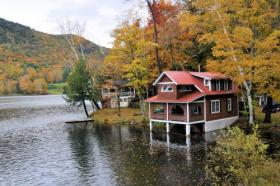
Manufacturer of systems and equipment for capturing and sorting rainwater.
"Where Water Quality Begins." A proponent of rain barrels and bluebelts, RiverSides works at the community level to save homeowners from the damages of flooding, and policy level to reduce costs of sewer treatment in Ontario.
California-focused tips and habits to reduce water consumption around the house and yard. Partner toolkit available to customize water conservation materials with your logo.
Turning the tap off while you brush your teeth can save 4 gallons a minute. 100 good tips for house and garden water use. Conservationist groups can buy a ready-made campaign from this U.S. group sponsored by water companies.
Approaching water conservation as a vital business industry we need to protect our planet, this site uses a variety of informative links to suggest water conservation at home, for kids, as a global concept and a business opportunity.
Vancouver Sun article lists seven tips to conserve water and reuse grey water to keep your garden green.
Water information for farmers, municipalities and industries. Regional Projects outlines river, reservoir and restoration projects. WIP is sponsored by water agencies, districts and organizations in Colorado, U.S.A.
Well water in homes and cottages can be easily contaminated by run-off containing pet feces, manure or pesticides, or by things like mice or bugs that fall into the well and decay. This Ontario, Canada program advises homeowners how to keep their well water safe.
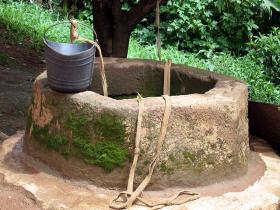
-
Political & Legal
90-minute PBS program follows worldwide examples of people fighting for their right to water.
The Blue Planet Project (no association with this website or Blue Planet Links Foundation) is an international campaign started by the Council of Canadians, aimed at "protecting the world's fresh water from the growing threats of trade and privatization" and preserving access to water as a fundamental human right.
British Columbia's Water Sustainability Act, set to come into force in 2015, represents the long overdue modernization of the Water Act. It claims improvements in protecting stream health and aquatic environments, regulating water use in times of scarcity, and measuring and reporting large-scale water use, among other areas. Under the new Act, commercial water bottling companies would be regulated and required to pay water fees to use groundwater, but critics say the WSA does not go far enough to protect water from being exploited by industry.
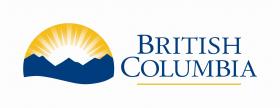
Human Interactions has good basic descriptions of Canada's water management, aquaculture, environmental and trade laws concerning water, other topics. From the University of Guelph.
This Simon Fraser University site, dedicated to exploring issues related to the British Columbia coastline, offers such projects and series as Speaking for the Salmon and A Planet Under Pressure: Citizens and Scientists Taking Action on Climate Change and Other Threats.
Offers news and opinion from Canadian and international media reports on Oceans (fisheries, ocean health and aquaculture) and Fresh Water (hydropower, water and hydrocarbons, privatization, scarcity).
Ecojustice uses the law to protect and restore the environment, issuing reports such as Drinking Water Report Cards and Sewage Report Cards, and generally holding government's feet to the fire. Formerly Sierra Defense Fund Canada.
This weekly focuses on international news. With some sifting, you'll find in-depth articles on water and economics, politics, business, technology, pollution, climate change, resource extraction and more.
Historical association designed to promote an understanding of the history of the control and use of fresh water resources throughout the world.
Water is a commodity. But as fresh water becomes more scarce, some people are looking at it as a potential investment.
February 1, 2018Grist. Under President Trump's order, the EPA rescinded Obama's Clean Water Rule for two years. Also known as the Waters of the United States (WOTUS), the rule had expanded protection and stronger standards for water and wetlands. Without it, farmers and developers are far less accountable for runoff pollution.
U.K. think tank hopes to reduce poverty and improve social development and water sector policy through various programs and projects. Search "water" for interesting stories and informative research in other parts of the world or see their Water Policy Program.
A platform through SFU's cross-disciplinary Faculty of Environment to help influence public policy and societal change in support of resilient water systems. The Centre uses BC resources, communities and professional and academic networks to advance national and international water research.
University of Victoria policy researchers investigate public policy options related to water sustainability. Publications suggest that an ecosystem-based paradigm is necessary for sustainability of water resources, requiring an integrated approach by all levels of government, business, industry and society.
Swedish policy think tank "contributes to international efforts to combat the world's escalating water crisis". Administers annual Stockholm Water Symposium as part of World Water Week, and provides international awards. Find publications on key issues of climate change; transboundary water issues; Middle East water issues; sanitation; water scarcity; food, waste and losses; business and finance, and anti-corruption issues.
Denmark's Environmental Assessment Institute, with The Economist newsweekly, presents a series of proposals on global issues on several fronts, based on research and discussion by leading economists and academics. Water & Sanitation underlines the value of sanitation (most conservative estimates say benefits equal 8x costs), and points out that delivery of water is a bigger problem than supply.
The Pacific Institute, an independent California-based think tank, provides up-to-date water information, data, and links to organizations working on a wide range of global freshwater problems and solutions. Special interest in international water law and water-based conflicts. Institute Director Peter Gleick authors a biennial World Water Report.
UNDP is the UN's agency for development advice and advocacy, with one focus on water governance. It is directed towards stopping unsustainable exploitation of water resources by developing water strategies at all levels of government to ensure sustainable and equitable water supplies.
This website provides a User's Guide on Assessing Water Governance.
A researcher in Belgium's University of Ghent runs this site focused on the role of water in international conflict and cooperation in the Middle East.
-
Rivers & dams
Coinciding with World Rivers Day, this annual celebration of BC waterways gives British Columbians an opportunity to appreciate their local rivers with likeminded individuals; find a riverside event near you!
Offers news and opinion from Canadian and international media reports on Oceans (fisheries, ocean health and aquaculture) and Fresh Water (hydropower, water and hydrocarbons, privatization, scarcity).
Current news about rivers, dams, drought, climate change and other freshwater-related topics. Encouragement to Change the Course of freshwater’s future.
A good place to learn about the Mekong and other great international waterways, Canada as a nation of rivers, and the plights and success stories of rivers world-wide. Renowned "riverologist" Mark Angelo of the British Columbia Institute of Technology's Rivers Institute provides the stories and stunning photography.
Links to a wide variety of informative and/or educational river web sites through Hamline University's Center for Global Environmental Education.
Empowers Canadians to work together and safeguard their waters through science, technology, storytelling, law and education. Oversees four programs: Great Lakes Challenges, Lake Ontario Waterkeeper, Swim Guide and Watermark Project.
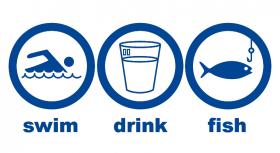
A rather stilted animation shows how a new system of barriers will protect London, UK against floods from an overflowing Thames River. Site also includes general information on floods.
Founded in 1980 by Mark Angelo. On the fourth Sunday of September every year, millions of people around the globe participate in events ranging from educational outings and community riverside celebrations to stream clean-ups and river restoration activities. British Columbia activities are spearheaded by BCIT's Rivers Institute.
Check out this news release for 2018 updates!
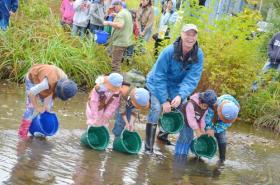
Pioneering freshwater conservation by engaging citizens to collect pertinent information about the health of our freshwater ecosystems on a national scale. Check out the status report of a Canadian watershed near you.
-
Water resource management & technology
"Weather is changing. Get ready for it." Weather is felt most tangibly through water: rain, snow, flooding, drought, ice. In Dry Spring by Chris Woods, we learn how climate change is already affecting North American orchardists, fishers and people who live on the coast. Wood offers some suggestions about how to mitigate the worst effects.
This weekly focuses on international news. With some sifting, you'll find in-depth articles on water and economics, politics, business, technology, pollution, climate change, resource extraction and more.
Type "water" in search engine under Publications for access to articles and papers, most on technical aspects of water management, treatment and pollution.
Non-profit scientific research organization specializes in water use in agriculture and integrated management of water and land resources, in Asia and Africa.
"Aligns industry, academia and government to ensure Canada is a leader in providing ocean energy solutioms." Information on wave, tidal and river energy generation and technology.
Researches and develops offshore renewable energy sources including offshore wind, waves, tidal currents, ocean and river currents and ocean thermal gradients.
Contains the latest developments and news about OTEC. Turning temperature differences between cool and less cool parts of the ocean into energy is a challenging, developing technology; see how it works and Google "ocean thermal energy conversion" for a variety of images.
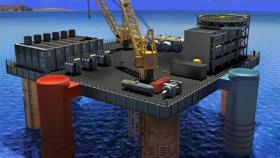
University of Victoria policy researchers investigate public policy options related to water sustainability. Publications suggest that an ecosystem-based paradigm is necessary for sustainability of water resources, requiring an integrated approach by all levels of government, business, industry and society.
Besides the obvious advantage low-tech rainwater harvesting offers for domestic water, the "extra" can provide farmers with higher and faster growth, more harvests, or different crops, e.g. rice and vegetables rather than sorghum and maize. The Google site offers dozens of diagrams, basic information about rainharvesting and rainharvesting projects.
Swedish policy think tank "contributes to international efforts to combat the world's escalating water crisis". Administers annual Stockholm Water Symposium as part of World Water Week, and provides international awards. Find publications on key issues of climate change; transboundary water issues; Middle East water issues; sanitation; water scarcity; food, waste and losses; business and finance, and anti-corruption issues.
Arizona-based science and technology centre which promotes the sustainability of semi-arid and arid regions (1/3 of the earth's land) through education and research.
A young person's idea to use ocean currents to sweep plastic waste into giant collectors is now coming to fruition. They've installed their first prototype and completed aerial mapping of major garbage patches.
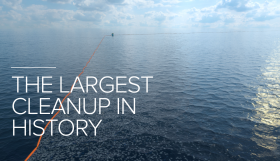
"The Complete Water Magazine" offers plenty for Canadian water managers and suppliers, but also water news and political issues.
Approaching water conservation as a vital business industry we need to protect our planet, this site uses a variety of informative links to suggest water conservation at home, for kids, as a global concept and a business opportunity.
A non-profit organization of water quality professionals dedicated to the preservation and enhancement of the global water environment. Its objectives are to foster innovation, enhance the knowledge of water quality professionals, and generate awareness of water's value.
-
Teaching ideas
Practical ideas we can implement at home! Includes a Water Conservation section containing its own helpful stock of links to Did You Know? facts and tips to decrease your water waste.
By Bob Malnor, Carol Malnor, Michael S. Maydak, with illustrator Barbara Shaw McKinney (Dawn Publications, 2003). Lesson plans for the book, "A Drop Around the World."
Activities and experiments to learn about the cause and effects of acid rain.
Coinciding with World Rivers Day, this annual celebration of BC waterways gives British Columbians an opportunity to appreciate their local rivers with likeminded individuals; find a riverside event near you!
A wonderful source of in-depth marine education resources. Data Activities includes categories such as Ocean Observing Systems and Human Activities, further divided into subcategories with activities. Sea Level Trends: students use real scientific data to compare sea level changes. Ask an Oceanographer: kids can have their question answered by the experts.
The Royal Canadian Geographic Society and the National Geographic Society sponsor this site as a resource for geography teachers. Lesson ideas can be easily broken down by themes (including Oceans), province or territory, and teaching level.
CWRA comprises private and public sector water resource professionals, scientists, academics, students and users. Water Websites has a section on educational resources. CWRA awards scholarships to post-graduate students studying water. Project Wet (see also below), a water education module for teachers.
CWF aims to represent and speak on behalf of wildlife by creating awareness and inspiring people to take action. Find out how to love your lake or follow the map of Canada's great whales!
Centre for Affordabale Water and Sanitation Technology's Youth Wavemakers program to inform, engage, encourage action, and celebrate the impact that youth are having on local and global water and sanitation issues. Watch the video of youth exploring the Rockies' watersheds by bicycle and you will get an idea of the waves they're making!
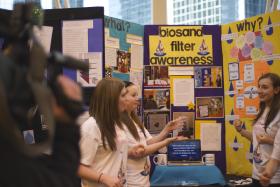
Basic information page and links to learn about water quality and safety created by kids in a youth centre as they learned about conservation.
Water classroom activities and lesson plans, from building an aquifer or a watershed, to understanding environmental impacts on our "blue gold" resource, to following real water time data. Includes an opportunity for science teachers to apply for a small grant.
A variety of freshwater-based topics and activities for different grade levels.
Engaging ocean-related activities for all grades K-12. One Ocean: A Guide for Teaching Grades 3-8 supplies real world context to teach how the ocean impacts humanity.
Promoting best practices in Environmental Education (EE). See Water for a variety of activities on the preservation of wetlands and watersheds, pollution and water quality.
A platform through SFU's cross-disciplinary Faculty of Environment to help influence public policy and societal change in support of resilient water systems. The Centre uses BC resources, communities and professional and academic networks to advance national and international water research.
Offers ready-to-use, water-based educational activities for students in K-12, designed "to increase awareness, appreciation, knowledge and stewardship of the world's water resources". Variety of units, teacher support.
Community Archive by teachers provides lots of quick tips, songs and activities that have been used successfully in the classroom to explain or expand on pollution, the water cycle, etc.
Rivers of Life is a full model for contextual learning - a "flood" of projects, adventures, and resources to help K-12 teachers and students learn about and from their own watersheds (or the Mississippi). Many, many links to other river-related web sites.
Arizona institute offers educational resources focusing on semi-arid and arid water regions and issues.
SEA Semester at Woods Hole offers memorable K-12 lesson plans in the areas of Oceanography, Marine Biology, and Nautical Sciences. Replicate ocean floor models with "Mid-Ocean Magnetism", experiment how temperature affects density with "Density Dynamics", or observe and identify microscopic creatures with "Microfishing".
Good selection of lesson plans, web quests, activities, projects, and handouts.
British Columbia-based group educates communties and schoolchildren about local watersheds, rivers and streams, "while dazzling them with community art". Look for brightly-painted fishes on fences.
Water and Environment topic from UNICEF's free global educational resources from PK - 12. PDFs of unit and lesson plans and supplementary resources broken down into "Plan", "Read", "Watch" and "Listen" sections will open students' eyes to water and sanitation problems children face worldwide.
A movement to incorporate growing and eating fresh vegetables into the curriculum. Share your own program to join the network of the edible education movement, or easily search for resources narrowed down by program, subject, grade, and even season.
Get your feet wet with ocean reading! This "aquatic twist on a classic club" will feature a monthly marine-themed fiction or non-fiction book complemented by an AquaBlog post highlighting the main themes and ideas.
Water crisis lesson plans for all grades, broken down into four sections: "The Problem", "The Solution", "Additional Resources", and "Get Involved". Contains interactive activities, articles, and videos.
A good place to get to know your basics about fresh water, including how it relates to health, erosion, pollution and climate change. Bonus: some fresh water experiments for kids!
What if the Antarctic ice cap melted? This companion to the PBS Nova program of the same name includes a Teachers' Guide.
California group offers school programs on the history, geography and science of water. Sells school age publications, lively games (The No-Know Game), DVDs, maps and posters.
Goal of this University of Minnesota web-based program is to train high school and 1st year post-secondary students to solve real world environmental programs. Uses online remote underwater sensing data.
The U.S. Geological Survey runs this lively site, which includes a wide range of special topics - e.g., acid rain, urbanization and water, "Thirsty? How about some seawater?" - as well as a data library, maps and more.
A curriculum module intended for grades 4-5. Features "the Water Cycle Boogie". Time frame: 2 weeks.
by Peter Meaney, Sarie Culka, Georges McKail (Illustrator) (Robert Andersen & Associates, 1994). Activities to teach participants of all ages and at all levels perfect swimming skills and to develop techniques of rescue and survival, ranging from simple games in ankle-deep water to advanced procedures that simulate difficulties any swimmer may face. The importance of safety and respect for water at any depth is emphasized.
Founded in 1980 by Mark Angelo. On the fourth Sunday of September every year, millions of people around the globe participate in events ranging from educational outings and community riverside celebrations to stream clean-ups and river restoration activities. British Columbia activities are spearheaded by BCIT's Rivers Institute.
Check out this news release for 2018 updates!

-
Children's fiction
By Barbara McKinney. Follows a drop of water in its natural voyage around the world, as ice, clouds, snow, underground water, sea water, and into plants and animals. (See Teaching ideas for "A Teacher's Guide to a Drop Around the World".)
Tish Rabe (Random House Books for Young Readers, 2005)
Ariah Fine (The Fine Print, 2010). All profits go to support clean water projects.
By Molly Cone. A school class restores salmon to a stream that hadn't had fish for 20 years.
By Rochelle Strauss, Rosemary Woods (Illustrator) (Kids Can Press, 2007).
by Joan Stephenson (IWA, 2003). Uses children's artwork and writing to teach about water. Profits to WaterAid.
By Carol Greene (Children's Book Press, 1982)
Meredith Hooper, Chris Coady (Illustrator) (Frances Lincoln, 1999).
By Joanna Cole, Bruce Degen (Illustrator) (Scholastic, 1988). An eccentric teacher takes her class on an adventure through the city waterworks and teaches science painlessly. Ages 6-9. (See Teaching ideas for guides to Magic Bus books.)
By Joanna Cole, Bruce Degen (Illustrator) (Harry N. Abrams, 1994). On a special field trip on the magic school bus, Ms. Frizzle's class learns about the ocean and the different creatures that live there.
By Joanna Cole, Bruce Degen (Illustrator) (Magic School Bus, 1998). Ms. Frizzle is at it again as she teaches her class about coral reefs.
By Thomas Locker (Voyager Books, 2002). Water on its daily journey through the world. For 3 yrs. and up.
By Julie Aigner-Clark & Nadeen Zaidi (Baby Einstein series for 0-4 year olds; Hyperion Books, 2003). Others in this cheerful series of DVDs and books include "What Floats?" and "Who lives in the Pond?"
-
Non–fiction & activities
Jacquie Bailey, Matthew Lilly (Illustrator) (Picture Window Books, 2004). Follow a drop through the water cycle and learn with activities.
By Walter Wick (Scholastic, 1997). See InfoLinks for teachers' guide.
Practical ideas we can implement at home! Includes a Water Conservation section containing its own helpful stock of links to Did You Know? facts and tips to decrease your water waste.
Alvin Silverstein and Virginia Silverstein (Dover Publications, 1998). Illustrations and descriptions of microscopic creatures found in water and their feeding, reproductive, and defense strategies.
By Bill Nye, Ian Saunders, John S. Dykes (Illustrator) (Disney Press, 1999). Scientist and television personality Bill Nye introduces young readers to the amazing, sometimes mysterious biome that covers nearly three-quarters of the earth's surface. He discusses marine animals and plants, salinity, currents, tides, the effects of earthquakes and tsunamis, and contemporary methods of exploration.
Centre for Affordabale Water and Sanitation Technology's Youth Wavemakers program to inform, engage, encourage action, and celebrate the impact that youth are having on local and global water and sanitation issues. Watch the video of youth exploring the Rockies' watersheds by bicycle and you will get an idea of the waves they're making!

Grist series tackling serious ocean issues with characteristic Grist humour. Articles include: "Blue whales are making a big comeback, we think", "Climate change puts out the welcome mat for invasive species", and "Where are the ocean heroes of our childhood now? All washed up".
Drippy the Raindrop and his pals make learning the water cycle fun with activities about precipitation, evaporation, and condensation.
United States Environmental Protection Agency kids' site is a seemingly unlimited resource of activities and classroom lessons. The Water Sourcebooks feature 324 activities for K-12.
American federal Environmental Protection Agency provides an extensive learning resource to help high school students understand the environment. Learn about water and choose your perspective!
January 12, 2015By Bobbie Kalman (Crabtree Publishing Company, 2011). This book from the Explore the Continents series uses maps, photos, drawings, and interesting facts to describe the five oceans which make up the "world ocean".
By Anthony D. Fredericks and Shawn Berlute-Shea (Illustrator) (Fulcrum Publishing, 1998). Activities, projects, and experiments in this book help children realize how critical the oceans are to our planet. Although most activities do not require access to a seashore, people near an aquarium or seashore will learn how to benefit from such a visit.
Excellent list of water education sites catering to kids to teach at an early age the need and methods to conserve water at home.
By Janice VanCleave (John Wiley & Sons,1996). Learning about the ocean and its inhabitants becomes an intriguing adventure. Use a bottle, pennies, a straw, and clay to demonstrate how submarines rise. Make your own wave holder with index cards and a plastic folder. Through these and other activities you'll find out how fish move up and down in water, how pollutants move into the ocean, how to navigate without a compass, how to map the surface of the ocean floor, and much more.
Three different water-themed pages: arts, crafts, science and snacks; bodies of water and water use; 39 different water games to keep kids cool in the heat.
January 12, 2015By Cathryn Berger Kaye and Philippe Cousteau (Free Spirit Publishing, 2013). In the up-and-coming teaching strategy known as service learning, kids are challenged and empowered to tackle the earth's water crisis through academic learning and meaningful service in their community. Kids In Action tells real-life stories of students researching the dwindling Ogallala aquifer in Texas, cleaning up and writing a book about a local creek in California, and installing water reservoirs in school toilets. A free Leader's Guide is available.
NASA's SeaStar satellite has a program called Sea-viewing Wide Field-of-view Sensor (SeaWiFS), that studies global water to understand water's behavior and how human behavior affects it. Missions have observed water temperature and color changes to assess such processes and characteristics as El Nino and the ocean's fertility.
By Catherine D. Hughes (National Geographic Children's Books, 2013). Animal reference book for all the most popular sea creatures.
By Cynthia Stierle (Reader's Digest, 2007). Alphabetical learning guide to the ocean's creatures coupled with a 45-minute DVD of entrancing footage of the underwater world.
Get the family together for hours of underwater entertainment with the oceanic version of the beloved Monopoly Game. Begin at "Splash" and collect Blocks of Water to trade in for Big Fish. Each deed card contains fun facts about your newly acquired ocean creature!
By Angie Belcher (HarperCollins, 2011). Describes food chains, symbiotic relationships, and ecosystems while impressing the need for conservation.
Besides the obvious advantage low-tech rainwater harvesting offers for domestic water, the "extra" can provide farmers with higher and faster growth, more harvests, or different crops, e.g. rice and vegetables rather than sorghum and maize. The Google site offers dozens of diagrams, basic information about rainharvesting and rainharvesting projects.
By Andrew Haslam (Northwoords Press, 2001). Maps, diagrams, experiments, landscape models, and projects help kids understand river geography with a flavour of Native American tradition.
January 12, 2015By Sarah Levete (Crabtree Publishing Company, 2011). Colourful book with large font for early readers. Learn why plastic and oil is dangerous to sea animals, what causes ocean warming, which animlas are most in danger, and how to fish sustainably.
A renovated and revitalized Telus World of Science in Vancouver includes new interactive water exhibits in Our World. Look for more fun involving water in the new Ken Spencer Outdoor Science Park.
The humorous and instructive Science, History and Culture of Clouds by Gavin Pretor-Pinney, UK founder of the Cloud Appreciation Society.
By Toni Albert and Ada Hanlon (Illustrator). Dozens of activities designed to teach children how they can help save the environment, while following the author's underwater adventures on the coral reef.
by David Lambert (Kingfisher, 2001). Part of an award-winning series.
By Center for Marine Conservation (John Wiley & Sons, 1989). Oceanside activities have been gathered from the education departments of major U.S. aquariums (Sea World, Mystic Aquarium), zoos, marine science institutions, and museums (the Smithsonian Institute) on such topics as ecology, exploring, and all forms of sea life, such as whales, fish, seals, and turtles. For K to 6, their teachers and parents.
Get your feet wet with ocean reading! This "aquatic twist on a classic club" will feature a monthly marine-themed fiction or non-fiction book complemented by an AquaBlog post highlighting the main themes and ideas.
A huge selection of videos, blogs, and more on countless different water-related topics. Excellent site for those who prefer visual learning.
Virtual game for kids to create their own family and score points by reducing their water consumption in daily activities.
Loree Griffin Burns (HMH Books for Young Readers, 2010). Oceanographer Dr. Curtis Ebbesmeyer analyzes human debris washed up by the waves to better understand and protect the ocean. Winner of the Boston Globe-Horn Book Award for Non-Fiction.
Activities for children on a variety of water topics and links to other educational sites.
Ocean Wise is a world conservation leader, internationally recognized for its marine mammal rescue program and ocean research. Its Vancouver Aquarium showcases marine life; its community education and research arms are dedicated to increasing global understanding and appreciation of our oceans. Check out Weekly Water Reports to look at the biggest threats to healthy water: overuse, diversion of natural flows, lack of access, pollution and climate change. Or for a lighter read - fun facts about Water Drops: did you know that big water drops are shaped like hamburger buns?
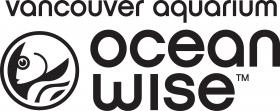
Resources for students and teachers K-12. The Aqua Venturer time machine allows you to explore an animated global timeline of water treatment, from sewers in ancient Rome through toilet paper trivia to "Politicians' Potties". Go with the Flow to follow wastewater as it moves through the various treatment sequences.
Smartphone apps turn saving water into mobile entertainment. "Drip Detective" calculates the money wasted on your current bill, "Tap the Tap" is fairly self-explanatory, "Captain Plop" explores saving water in the plumbing system, and "H20 Tracker" encourages telling the City if your neighbours waste water!
David J. Jakubiak (Rosen Publishing, 2012). A photographic, informative reality check which will help young environmentalists understand and potentially mitigate the consequences of using oil as our primary energy source.
January 12, 2015Edited by Matt Dembicki (Fulcrum Publishing, 2014). Comic-style anthology featuring twelve endangered sea animals: hawksbill turtle, Bluefin tuna, hammerhead shark, giant clam, manatee, blue whale, coral, albatross, whale shark, monk seal, manta ray, and seahorse.


